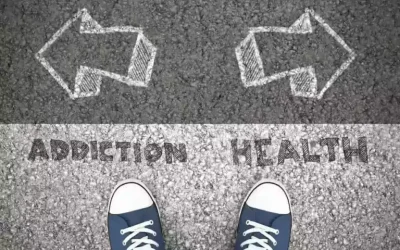Content
If you have mild-to-moderate alcohol withdrawal symptoms, you can often be treated in an outpatient setting. During this process, you will need someone to stay with you and keep an eye on you. You will likely need to make daily visits to your provider until you are stable. Alcohol has a sneaky way of increasing your daily calorie intake without you realizing it.
- According to the Dietary Guidelines for Americans, alcohol should be consumed in moderation — up to one drink per day for women and up to two drinks per day for men.
- When you stop using alcohol, it allows you to repair these relationships without the disruptive effects that alcohol brings.
- Occasionally, I just awkwardly sipped it because I didn’t want to say no and have to explain why.
- How long does it take for your skin to clear up after quitting drinking?
- Improved sleep quality - Drinking alcohol before bed can suppress REM sleep, which is an essential part of the sleep cycle.
If symptoms occur, this usually happens between 6 to 24 hours after the last drink or when a strong reduction in drinking took place. During this time, you will likely experience withdrawal symptoms, so be prepared for them. However, once you're through with the detox period, you will be better equipped to make better decisions about drinking and alcohol consumption in general. Glucose levels stabilize - Alcohol inhibits the liver’s ability to release glucose, which causes blood sugar levels to drop. Since your liver function improves after a month without alcohol, your glucose levels will also stabilize, which reduces your risk of developing diabetes.
Heart and blood pressure
Alcohol and heavy drinking can cause long-term, negative impacts on the brain, including poor memory and slower reflexes. Over time, the brain can actually get used to the effects of alcohol, causing it to work harder and cause unpleasant or even dangerous withdrawal symptoms like tremors and heart palpitations. Alcohol use disorder frequently occurs alongside other mental health conditions. Pre-existing mental health conditions can sometimes lead people to turn to alcohol to cope with their symptoms.
People with alcohol use disorder who quit drinking often have trouble sleeping. Cognitive behavioral therapy for insomnia (CBTi), medication, or a referral to https://ecosoberhouse.com/article/binge-drinking-how-to-stop-binge-drinking/ a behavioral sleep specialist can help. Over time, heavy drinking can cloud your perception of distances and volumes, or slow and impair your motor skills.
Sobriety and Weight Loss – Can Sobriety Help You Lose Weight?
Many people drink to ease their anxiety in social situations, and find that it can help them feel more confident. But remember - alcohol actually changes the brain’s chemical structure, lowering levels of serotonin, which makes people more susceptible to anxiety and anxiety disorders. Improved kidney health - Drinking alcohol can damage kidneys over time, causing an inability to function properly. After only three weeks without alcohol, your kidneys can start to heal and function properly.
What can I drink instead of alcohol?
- Soda and fresh lime. Proof that simple is still the best.
- Berries in iced water. This summery drink will keep you refreshed and revitalised.
- Kombucha.
- Virgin bloody Mary.
- Virgin Mojito.
- Half soda/half cranberry juice and muddled lime.
- Soda and fresh fruit.
- Mocktails.
Certain prescribed medications can treat alcohol withdrawal, allowing patients to focus on other aspects of recovery. Don’t let the fear of possible withdrawal symptoms prevent you from getting the help you deserve. Learn more about treating alcoholism and support options by reaching out to a treatment provider. Because alcohol withdrawal can be dangerous – and even kill you – make sure you have medical advice from your doctor or a rehab facility when you decide to stop drinking. "You may notice an increase in mental clarity and memory, [since] alcohol use can impact concentration and memory," he explains. They think it has something to do with how fast or slow your brain adapts during recovery.
Alcohol Withdrawal Effects
I skip margaritas, rum and Cokes, or anything else that’s overloaded with sugar. And, yes, even when enjoying healthier drinks, I limit myself to just one glass. I find that one drink doesn’t keep me from making healthy decisions—and it’s much easier to stop after one than after two or three. Many people do not feel that they have an alcohol use disorder because they only drink on weekends,... If you find that after a month without alcohol, you feel confident that you are able to better manage your alcohol consumption moving forward, you may not have to quit alcohol forever.

Many former drinkers will continue to see improvements in their sleep patterns, their hydration, and their skin health. At the end of 48 hours, a lot of people may get discouraged because they don’t see any results of not drinking — besides no what happens when you stop drinking alcohol hangovers and remembering what happened the night before. It is worth mentioning that nutritional status improvement occurs when someone strop drinking, which is one big reason why people may see many of the above improvements with sobriety.
It may be hard to imagine life without alcohol, but if you're thinking of quitting cold turkey, you might want to reconsider. Quitting alcohol can be quite dangerous and even fatal for heavy drinkers. Men consume an additional 433 calories on those days they drink a “moderate” amount of alcohol, according to one study. Cut those from your diet—and don’t replace them with desserts or snacks—and you’ll start to drop pounds without much effort. Studies have shown that after three-weeks of abstinence from alcohol, patients saw a complete recovery of gut barrier function in subjects who suffered from alcohol addiction and leaky gut. In most cases, after a year of sobriety, non-heavy drinkers can expect their liver enzymes to return to normal levels.